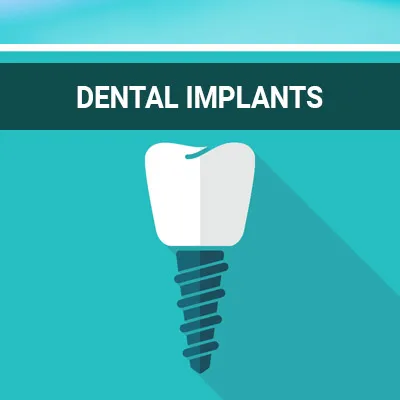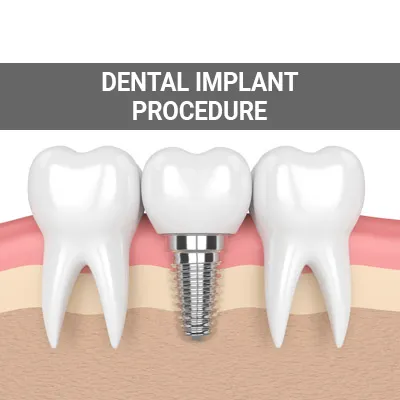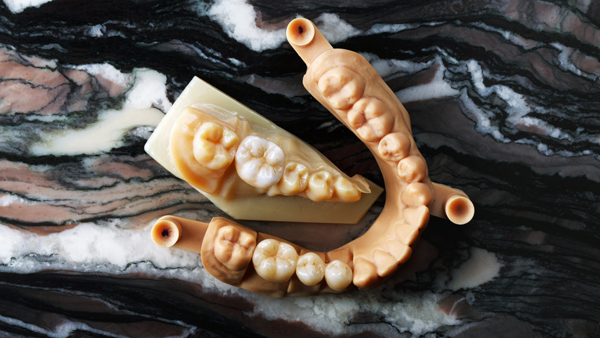Am I a Candidate for Dental Implants Charlotte, NC
Most people are candidates for dental implants and their benefits. The dental implants procedure is a tooth restoration that involves inserting implant posts into the jaw to support a dental prosthesis. However, certain aspects of a person's oral health can determine whether they can receive dental implants or not.
Dental implant restoration is available at Randolph Dental Care in Charlotte and the surrounding area. Dentists often recommend dental implants after performing a comprehensive evaluation of the patient. Call us today at (704) 366-3622 to book an appointment or learn more about our services.
A Great Restoration Option for Most People
Dental implants are durable and popular dental restoration for people who have lost one or more teeth. Failure to replace lost teeth makes chewing inefficient and may disrupt the structure of the oral cavity. Fortunately, people looking to restore the function and appearance of their smile can turn to dental implants. The dental implant process involves the surgical placement of a titanium implant into the jawbone to function as the foundation for a replacement tooth to keep it secure.
The dentist will then attach an abutment and a dental prosthesis (crown, bridge, or denture) to complete the restoration process. Dental implants have a high success rate of up to 98 percent. This is because its position in the jawbone helps to stimulate the bone and keep the living tissue alive. The restoration is the closest patients can get to having teeth that look, feel and function like their original teeth.
“Dental implants are durable and popular dental restoration for people who have lost one or more teeth.”
How Dentists Determine Candidates for Dental Implants
When patients visit the dental office, the dentist will perform a thorough examination to determine if the condition of their oral health may result in dental implant complications. Our dentist may recommend the proper treatment to restore good oral health and a patient's dental implant candidacy if any issues are detected.
When determining whether a patient can safely and effectively receive dental implants, the dentist may consider the patient's overall wellbeing during the initial consultation for dental implants. Since the treatment requires surgery, the patient needs to be healthy to undergo the procedure. Also, certain conditions may affect the way the bone heals around the implant and the long-term success of the procedure, including:
- Cardiovascular conditions
- Diabetes
- Excess alcohol intake
- Medications such as NSAIDs, antidepressants, and bisphosphonates
- Smoking
Patients must complete treatment for any preexisting condition to prevent infection during the implant procedure.
“Patients must complete treatment for any preexisting condition to prevent infection during the implant procedure.”
Factors That Enable Patients to Receive Dental Implants
Healthy Gums
Having healthy gums is crucial to a patient being able to receive dental implants. Gum disease is the leading cause of tooth loss in adults and is, therefore, one of the most common inhibitors to being eligible for dental implants. Periodontal diseases damage the gum and jawbone supporting the teeth. Since dental implants integrate with the jawbone, any infection that affects the gum may also jeopardize the jawbone. There is a high risk of implant failure in patients with uncontrolled or untreated gum disease. Until the condition is under control, the dentist will not recommend getting dental implants.
Sufficient Bone Density
Aside from healthy gums, having healthy bone density is also crucial to dental implant candidacy. Bone density affects the condition of the jawbone. Jawbone health is crucial because it provides primary support for the implant. Without proper reinforcement from a strong bone, the implant restoration may come loose. The dentist will examine the jawbone to ensure it has the strength and density to hold an implant. Jawbone deterioration may follow advanced gum disease, causing erosion of healthy bone structure or tooth loss, when the jawbone stops receiving stimulation due to tooth loss. Fortunately, the dentist can use a bone graft to boost the strength and integrity of the jawbone.
“Aside from healthy gums, having healthy bone density is also crucial to dental implant candidacy.”
Check out what others are saying about our dental services on Yelp: Am I a Candidate for Dental Implants in Charlotte, NC
The Procedure
A dental implant procedure can take many months because it involves multiple procedures that require healing time in between. Exactly how long and how many procedures will depend on the patient's unique situation. For example, patients who need bone grafting can expect the process to take longer.
Overall, patients undergo a series of outpatient procedures, typically starting with removal of damaged teeth or any bone grafting needed to prepare the jaw. Then, the dental titanium post is placed and the patient must recover after that procedure. It is important to give the jawbone ample time to heal around the post. The final step is the placement of the replacement tooth or teeth in the form of a crown, bridge or permanent denture.
“Exactly how long and how many procedures will depend on the patient’s unique situation.”
Questions Answered on This Page
Q. How long does the implant procedure take?
Q. Why are dental implants a great restorative option for most people?
Q. How do dentists determine whether a patient is a candidate for dental implants?
Q. What factors enable a patient to receive dental implants?
Q. What other common issues can prevent a person from being a dental implant candidate?
People Also Ask
Q. When is bone grafting necessary?
Q. What does the implant recovery process look like?
Q. What are the benefits of dental implants?
Other Common Inhibitors to Dental Implants
Teeth Grinding or Clenching
People who grind or clench their teeth may need to take extra precautions to protect their dental implants. Teeth grinding, also known as bruxism, can be the result of anxiety, sleep, stress, and hyperactivity. Bruxism places undue stress on the teeth and causes premature implant failure. Patients who grind their teeth need to take necessary precautions before getting dental implants, including the use of a mouthguard to protect the teeth from the effects of bruxism.
Patience for the Procedure
Another factor that may determine if dental implants are right for you is patience. Dental implant restoration may take as long as six months because of the osseointegration process. The dentist will only place the final restoration on the dental implants after the bone heals fully. Preliminary procedures such as bone graft may add to the timeline. Fabricating the final restoration may also take weeks. Anyone considering dental implants needs to prepare for the commitment.
“People who grind or clench their teeth may need to take extra precautions to protect their dental implants.”
Frequently Asked Questions
Q. What happens if I have crooked or crowded teeth but need dental implants?
A. Crowded or crooked teeth can prevent a person from receiving dental implants successfully. Fortunately, patients can receive dental treatments such as tooth extraction to create space to place the implants. In addition, patients with crooked teeth may need teeth straightening treatment to align their teeth.
Q. Is there an age limit to getting dental implants?
A. Dental implants are suitable for adults with permanent teeth. Although older patients can get implants, they may not have the required bone density to support an implant, especially if they have worn dentures for long. In such cases, a mini dental implant may be the more appropriate option since the metal post is shorter and needs less bone structure.
Q. Can I still receive dental implants if I wear dentures?
A. The dentist may be able to support your dentures with dental implants. Implant-supported restorations are usually stronger and fitting than regular dentures. It will also prevent further jawbone resorption, which is common with denture wearers.
Q. How long does it take to receive dental implants?
A. The number of implants determines the duration of treatment. It may take about an hour to complete the placement. There is a waiting period during which the bone heals. Once osseointegration is complete, the dentist will complete the final restoration in no time.
Q. Are there any risks associated with dental implant placement?
A. Like any surgical procedure, there are some risks associated. Issues are rare, and are usually minor and easily treatable should they occur. Such risks include infection, injury or damage to the surrounding oral structures, sinus issues, and nerve damage.
Dental Implant Terminology
Call Us Today
We are here to help patients make the right decision about treatment and determine if they are a good candidate for dental implants. If you are interested in learning more about dental implants treatment, then call us at 704-366-3622. We can schedule a time for you to come in for a visit. We can determine what your oral health needs for a healthy and bright smile.
Helpful Related Links
- American Dental Association (ADA). Glossary of Dental Clinical Terms. 2024
- American Academy of Cosmetic Dentistry® (AACD). Home Page. 2024
- WebMD. WebMD’s Oral Care Guide. 2024
About our business and website security
- Randolph Dental Care was established in 2016.
- We accept the following payment methods: American Express, Cash, Check, Discover, MasterCard, and Visa
- We serve patients from the following counties: Mecklenburg County
- We serve patients from the following cities: Charlotte, Matthews, Huntersville, Fort Mill, and Pineville Mint Hill
- Norton Safe Web. View Details
- Trend Micro Site Safety Center. View Details
Back to top of Am I a Candidate for Dental Implants












